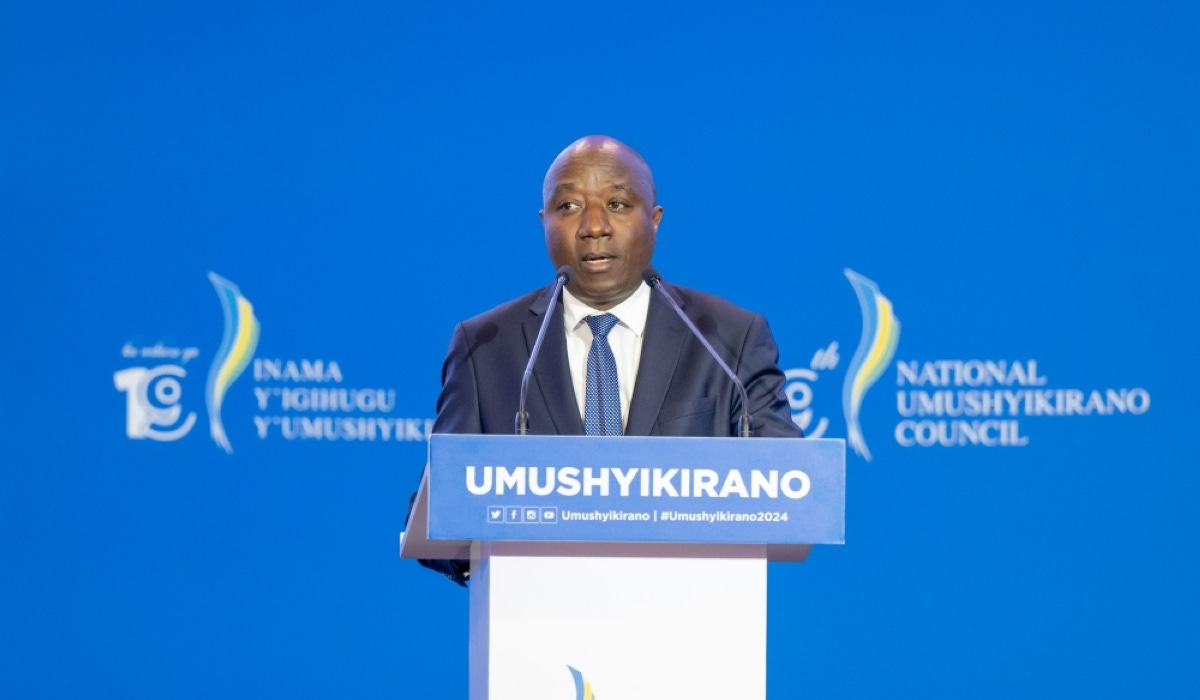Rwanda’s digital transformation: an effort at intergovernmental collaboration
Edition #92 From interweave.africa: As Rwanda embarks upon its second seven-year digital plan, Zoey Soh looks at the lessons and achievements of the first...
Earlier this year the interweave team announced the launch of interweave.africa, an extension of our coverage of the digital government world beyond Europe and Asia to include the exciting innovations coming out of Africa. This week, as we announce a fresh call for writers for that newsletter, we are cross-posting our latest thinking on Rwanda’s digital transformation from interweave writer Zoey Soh.
In 2017, Rwanda published its National Strategy for Transformation (NST1), a seven-year plan to achieve higher living standards for all Rwandans. As the country embarks on the strategy’s second generation, NST2, we reflect on the government’s progress towards these goals, which includes initiatives to increase digital literacy among the population and leverage intergovernmental cooperation for digital transformation.
As mentioned above, we are also looking for new writers to join the interweave Africa team. If interested, please fill in the Google form here.
One key priority area of the Economic Transformation Pillar of NST1 was establishing Rwanda as a globally competitive and knowledge-based economy that provides high standards, quality services, and customer care across both the public and private sectors. For this, the Rwandan government believes that increasing digitalization is key to innovation and job creation. By achieving NST1 and thus digitalizing the economy and society, the Rwandan government aims to accelerate the country’s development.
Rwanda has been investing in digital infrastructure for several years, enhancing digital skills among its citizens, and expanding digital public services. For example in 2013, the government signed a deal with South Korea's largest telecom provider KT Corp to build a mobile telecommunications network in the country. The company invested around $140 million in the project, which planned to serve as the foundation of Rwanda’s digital infrastructure. The resulting 4G LTE mobile network is now available in 95% of the country.
With this foundation in place, the government is partnering with Rwandan technology company Irembo to build a digital platform for citizens to access governmental services. Currently, the Irembo platform offers over a hundred services, such as applying for a driver’s license, receiving identity certificates, and marriage services. This multi-purpose platform is similar to other examples we have covered on interweave before, such as Singapore’s LifeSG and India’s UMANG.
Building the foundations of a digital ecosystem
To reach the current level of digital transformation, Rwanda first had to address its lack of access to digital tools and skills among the population, which prevented citizens from accessing e-government services. The last census from the National Institute of Statistics Rwanda reported that during the 2016-2017 period, digital literacy was only 8.9% among Rwandans aged 15 and above. Rwanda defined digital literacy for this census as having the ability to adapt to digitalization, especially through the use of e-services.
Rwandan Prime Minister Édouard Ngirente announces NST2 (Source)
To increase digital literacy and the use of digital government services among the population, particularly in rural communities, the Rwandan Ministry of Information Communication Technology and Innovation (MINICT) launched the Digital Ambassadors Program (DAP). This initiative recruits youth ambassadors to train Rwandan citizens in digital skills. Since its launch in 2017, the DAP has trained over 60,000 citizens.
The role of international collaboration in building a digital Rwanda
Beyond these partnerships and programs, Rwanda also collaborates with the Deutsche Gesellschaft für Internationale Zusammenarbeit (GIZ) GmbH, Germany’s national development cooperation agency commissioned by the German Federal Ministry for Economic Cooperation and Development (BMZ). The scope of their partnership extends beyond implementing digital government solutions and broadly aims to increase business, attract investments, and create jobs in the Rwandan market.
This naturally involves digital transformation projects, such as GIZ opening a Digital Transformation Center in Kigali in 2019. Since 2023, the center has worked with the Rwandan Ministry of ICT’s implementing agency, the Rwanda Information Society Authority (RISA), to support government institutions and local tech companies with digital skills training and solutions development. Among other things, the center has a Public Sector Innovation team that develops and implements technologies to increase public sector efficiency. It also helps establish working models and organizational change to foster innovation mindsets in the public sector, as well as implement common IT infrastructure to increase effective service delivery and reach to citizens.
The Rwanda-German initiative is only one of many intergovernmental collaborations supporting Rwanda in reaching its ultimate goal of improving living standards for all citizens. In January 2023, the government started a project to digitalize and increase innovation in Rwanda’s public services. This was supported by a $39.8 million loan from Agence Française de Développement (AFD), France’s national development agency, and accompanied by a $1.3 million grant from the AFD to leverage French expertise in the project. These loans and grants are aimed at supporting the integration and improvement of ICT infrastructure within local and central government administrations, especially those that provide direct services to citizens.
In addition, the project aims to develop capacity for geospatial data and Rwanda’s drone industry. For example, the project supports Rwanda’s establishment of a geospatial hub (GeoHub), which uses satellite images to support different government sectors, such as agriculture, urban planning, and disaster management. The GeoHub is managed by the Rwanda Space Agency (RSA) and is designed to support data-driven policymaking. Currently, geospatial data is already being leveraged to build climate model projections that inform policies on climate change mitigation and adaptation in agriculture and food security.
Regarding Rwanda’s drone industry, AFD aids the construction of a Drone Operations Center (DOC) in Huye, a Southern Province of Rwanda. The DOC will act as a test location for new drone use cases and will be managed by a private company. The government hopes that investing in the region to become a hub for drone development will make it more attractive to additional technology investments from the private sector. Ultimately, they aim to reduce the discrepancy in economic activity between the Rwandan capital and the rest of the country.
Balancing local and international innovation
Despite these numerous international agreements, it is important that Rwanda does not neglect partnerships within its own country and its local expertise and resources. Failures to do so have worked to the country’s detriment in the past. The aforementioned partnership between the government and the Korean telecoms provider KT Corp’s resulted in the latter’s monopoly over Rwanda’s 4G infrastructure. The Korea Telecom Rwanda Networks (KTRN), the network launched by KT, obtained exclusive rights to be the sole wholesaler of 4G LTE in Rwanda. As a result, local telecom companies like MTN and Airtel were unable to develop their own 4G network and could only offer services through the infrastructure of KTRN’s network.
Consequently, in 2023, the Rwanda Utilities Regulatory Authority (RURA) announced the modification of the agreement with KTRN that would enable local companies to launch their own 4G networks to foster competition and accelerate the rollout of mobile broadband networks in Rwanda. Following this, both MTN and Airtel launched their own 4G LTE services at prices cheaper than the market price at the time. A healthy local tech ecosystem, as well as international partnerships, will be key for the country in continuing to offer better and cheaper digital services to its citizens.
Collaborations with governments and companies in other countries can stimulate a developing country’s digital transformation through external resources and expertise. However, it is crucial to leverage and nurture domestic talent and resources to keep a competitive balance. Rwanda’s digital transformation demonstrates the power of a digital transformation that can occur when international partnerships and local innovation work in lockstep.







